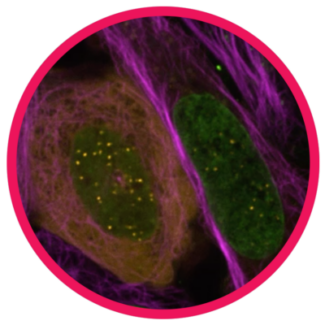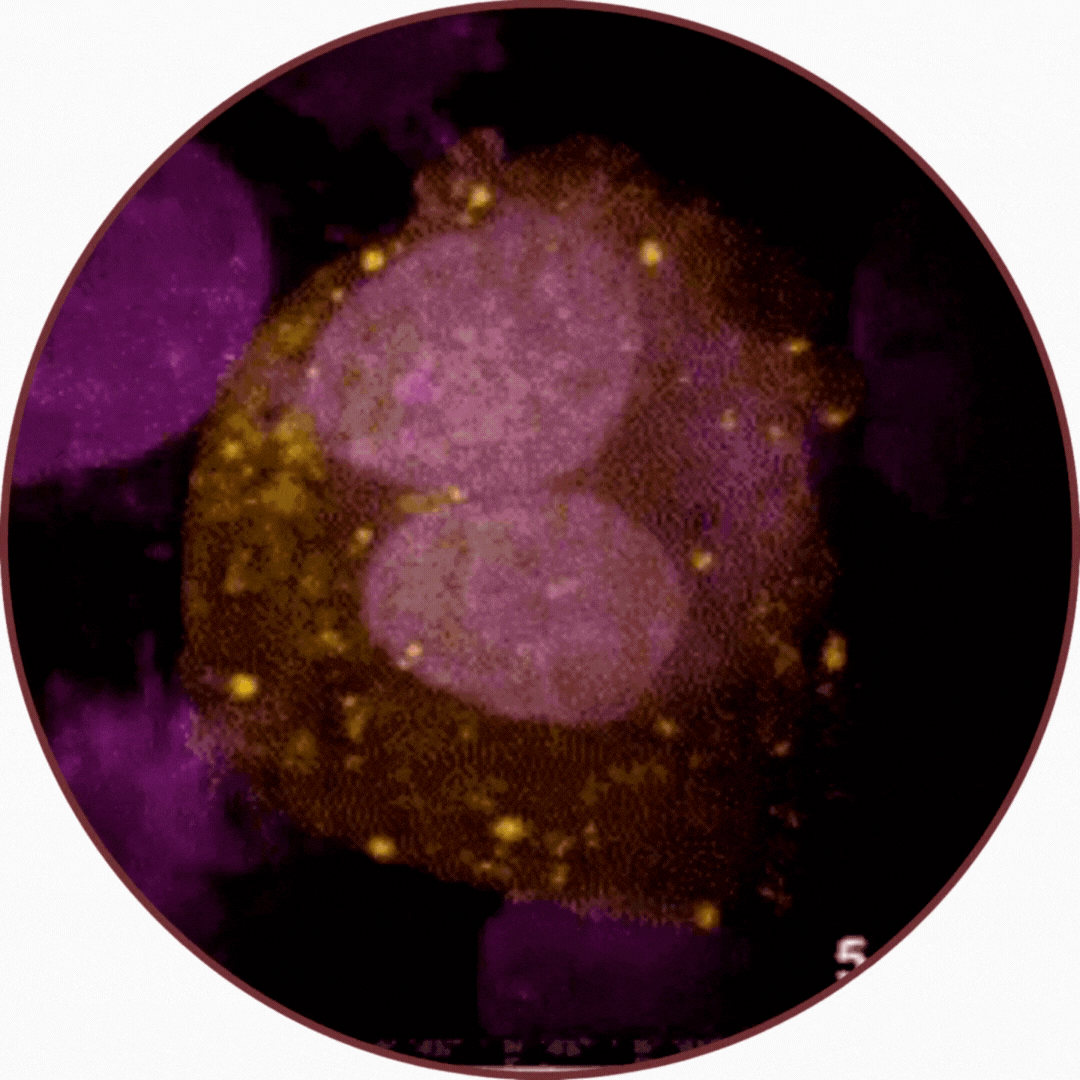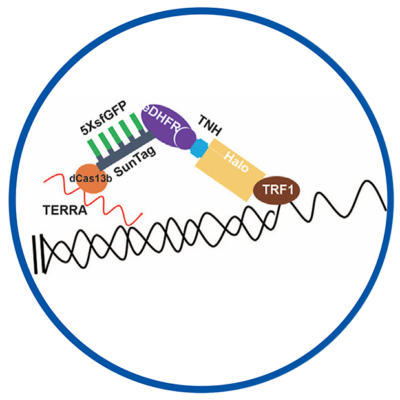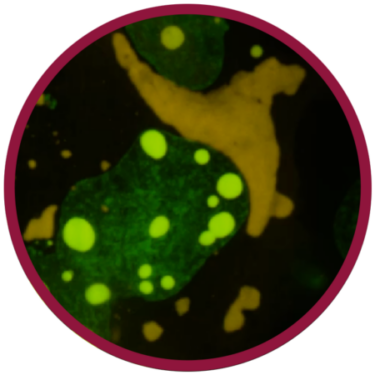Our Research
Phase separations organizes proteins and RNAs into compartments called biomolecular condensates in cells. We study how phase separation promotes cellular functions in healthy cells and how misregulation of it leads to cancer. Building on this, we engineer synthetic organelles by taking inspiration from cells and develop therapeutic strategies by targeting condensates in cancer cells.



Investigate functional significance of phase transition in cells
We develop chem-optogenetic tools to manipulate phase separation in live cells so we could observe the functional consequences. We focus on telomere DNA synthesis in cancer cells, a biochemical reaction that all cancer cells rely on for immortality. We demonstrated that condensation of liquid droplets on telomeres of telomerase-free cancer cells clusters telomeres to provide templates required for homology-directed DNA synthesis. We ask how the nucleation process is regulated, how the components are recruited, how the material properties are controlled and how they contribute to telomere DNA synthesis and cancer cell growth.
Engineer synthetic organelles
Using a bottom-up approach to construct biomolecular condensates will advance our understanding of liquid condensation in cells and inspire new applications exploiting phase separation. To this end, we focus on investigating the nucleation and growth of condensates in the nucleus and
engineering condensates to control cellular processes such as cell cycle and cell death.





